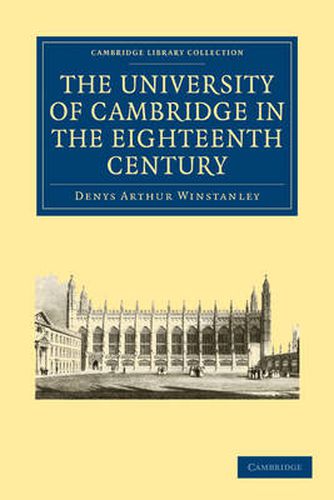Readings Newsletter
Become a Readings Member to make your shopping experience even easier.
Sign in or sign up for free!
You’re not far away from qualifying for FREE standard shipping within Australia
You’ve qualified for FREE standard shipping within Australia
The cart is loading…






In this 1922 book, the first of four on the history of Cambridge in the eighteenth and nineteenth centuries, D.A. Winstanley, a Fellow of Trinity College and leading historiographer, explored the close ties between the academic and political worlds in the mid-eighteenth century. The book focuses on the role and achievements of the Duke of Newcastle, a Whig politician, as Chancellor of the University during the period 1748 to 1768. It makes extensive use of primary sources including the Duke’s own records, which provide valuable documentation not only about his own activities but also about wider issues. Winstanley gives a detailed account of the inner working structures of the university and the colleges, introduces some of the most significant Cambridge personalities, and assesses the Duke’s contribution to the university’s development. His book remains of lasting interest to historians of education and the university.
$9.00 standard shipping within Australia
FREE standard shipping within Australia for orders over $100.00
Express & International shipping calculated at checkout
In this 1922 book, the first of four on the history of Cambridge in the eighteenth and nineteenth centuries, D.A. Winstanley, a Fellow of Trinity College and leading historiographer, explored the close ties between the academic and political worlds in the mid-eighteenth century. The book focuses on the role and achievements of the Duke of Newcastle, a Whig politician, as Chancellor of the University during the period 1748 to 1768. It makes extensive use of primary sources including the Duke’s own records, which provide valuable documentation not only about his own activities but also about wider issues. Winstanley gives a detailed account of the inner working structures of the university and the colleges, introduces some of the most significant Cambridge personalities, and assesses the Duke’s contribution to the university’s development. His book remains of lasting interest to historians of education and the university.